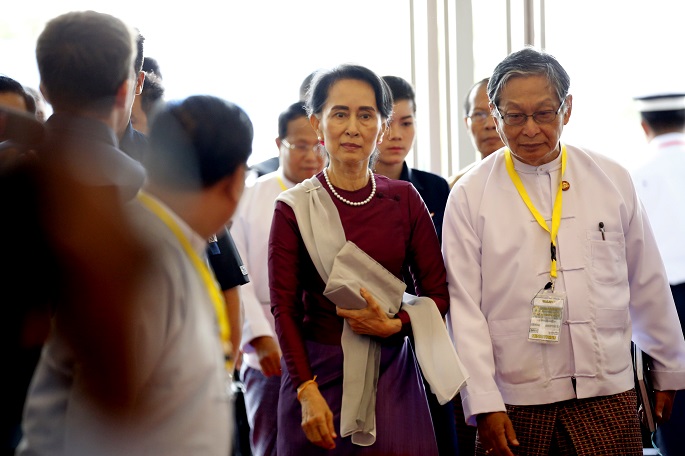US Holocaust Memorial Museum cancels award to Suu Kyi
Published : 07 Mar 2018, 22:57
United States Holocaust Memorial Museum rescinded its top award to Myanmar leader Aung San Suu Kyi following the military aggression on the minority Rohingya people during the recent period, said a press release of the museum on Wednesday. The Museum authority in a letter sent to Suu Kyi on Tuesday via Myanmar Ambassador in this regard.
“Based on inspiration that you created for millions around the world, with your long resistance to military dictatorship, and your advocacy for freedom and human rights for all the people of Myanmar, we were honored to present you with the first Elie Wiesel Award in 2012. It is with great regret that we are now rescinding that award. We did not take this decision lightly,” said the letter signed by Sara J. Bloomfield of the Museum.
The letter said that in recent years, the Museum has been closely monitoring the military’s campaign against the Rohingya and your response to it.
“In November 2013, we held a public event at the Museum to call attention to our growing concerns, titled: “Our Walls Bear Witness: The Plight of Burma’s Rohingya.” Since that time, we have undertaken numerous visits to Myanmar and Bangladesh to obtain firsthand evidence so that we can fully understand the extent of the persecution and crimes committed, as well as the motivations and actions of all the responsible parties,” said the letter.
In May 2015, the museum authority published “They Want Us All to Go Away,” which documented the early warning signs of genocide. Last November, it released detailed findings based on research on the ground documenting crimes against humanity, ethnic cleansing, and what it termed “mounting evidence of genocide” committed by the Myanmar military against Rohingya civilians since October 2016.
“Regrettably over the last five years the situation has become progressively worse and today seems untenable for the Rohingya population,” said the letter.
The widespread abuses by the Myanmar military against the Rohingya people intensified further in 2017, which prompted about 1000,000 Rohingya people to flee and took shelter in neighbouring Bangladesh.


